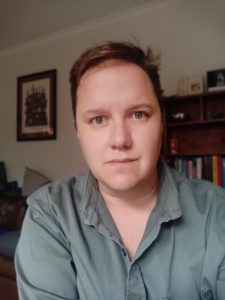Cai Wilkinson of Deakin University is an Associate Professor of International Relations with particular focus on LGBTQ human rights. After studying the experiences of LGBTQ international students in Australia, she joined Deakin’s self-assessment team to understand and contextualise the LBGTQ experience within a gender equity perspective.
Originally from the UK, Wilkinson was familiar with the Athena Swan framework. “While I hadn’t been actively involved with it in the UK, I saw [joining the self-assessment team] as a really good opportunity to contribute, particularly at the Bronze Award level. Starting the conversation and having the data means the problems can’t be ignored anymore. It was a really attractive proposition.”

Although Athena Swan began as an initiative for academic women in STEMM, its scope has expanded over time to include staff and students from any discipline in higher education and research. The current framework also supports professional and technical staff.
“The social sciences can give us a space to begin to reflect, interrogate and undo assumptions,” says Wilkinson. “That’s going to be crucial for generating the organisational change that we want to see.”
To achieve that organisational change, Wilkinson says that there needs to be more flexibility and inclusion of other gender identities when setting targets for equity and diversity initiatives. “Even with a 50:50 approach, we still have a huge problem,” she says.



